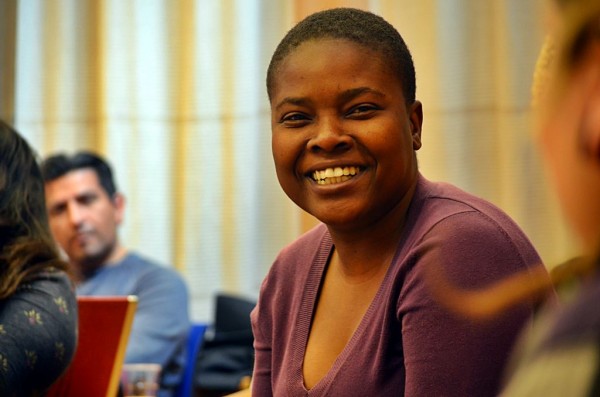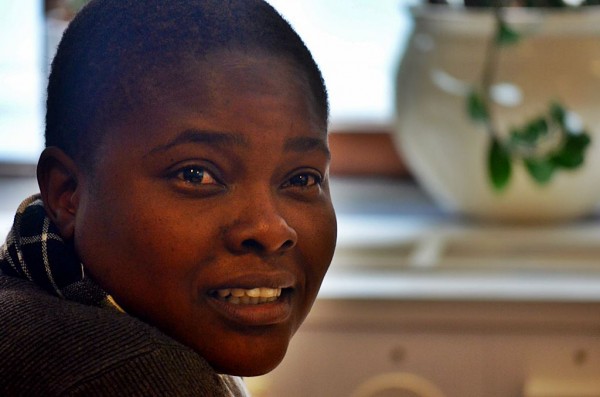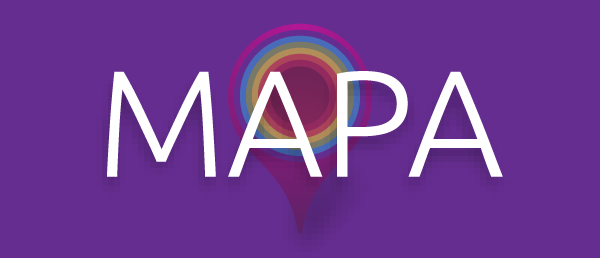 Diana Mailosi is an activist and a human rights advocate from the Zimbabwean NGO Gays and Lesbians of Zimbabwe, better known as GALZ. With the support of other human rights NGOs GALZ is working on protecting the rights of the LGBT persons in Zimbabwe. Unfortunately, Zimbabwe is one of the many African states that have extremely conservative laws and leadership.
Diana Mailosi is an activist and a human rights advocate from the Zimbabwean NGO Gays and Lesbians of Zimbabwe, better known as GALZ. With the support of other human rights NGOs GALZ is working on protecting the rights of the LGBT persons in Zimbabwe. Unfortunately, Zimbabwe is one of the many African states that have extremely conservative laws and leadership.
LGBT activism in Zimbabwe
I talked to Diana Mailosi about the fight for rights of LGBT persons, forming a dialogue with state institutions and everyday lives of LGBTI persons as well as her as an activist.
We fight a lot against politicians who publicly ask for supervision of lesbians, gays, bisexuals and trans* persons which contributes to the hostility towards the community. We are trying to educate the community on their rights, about what they need to do to protect themselves and how to use the existing structures to their advantage (e.g. the police). We are also trying to create other possibilities and opportunities for them to get the things they need, said Diana.
The whole struggle and education happen through different channels, so that it’s never simply a fight for rights of LGBT persons. It is always indirect, channelled through human rights, fight against HIV/AIDS and similar projects.
We have arrangements with several doctors that we can refer our members to for treatment, because the regular hospitals and clinics can be very homophobic, and can therefore limit our members’ access to healthcare services, depending on the type of treatment that they require. We also have several partners that provide other types of services, for example counselling. We have safe houses because there is a high incidence of violence and individuals are frequently kicked out of their homes and need temporary housing before a more permanent solution can be found. We are also trying to involve legislators to raise awareness about the living conditions of LGBTI persons. It is difficult because our president is homophobic and frequently gives homophobic statements, which is another reason why finding allies who are willing to work, or cooperate with us is extremely difficult. We have a lot of support from the shadows, because no one wants to be perceived as our supporter.
They are trying to use international organizations like the UN agencies and different embassies, as well as regional representatives who may be able to influence the situation in the state in some way. Diana said, –The only way to fight is to use all of our available resources, we have to be creative.
Violence and discrimination are daily occurrences. We have noticed an increase in the number of problems that gay men face, people who’ve lost their job, or who’ve been kicked out from their homes and schools because people found out that they were gay. We also encounter a lot of violence, sometimes physical, sometimes verbal, especially in highly populated areas. Gay men are attacked most frequently, although there have been several incidents where victims were women.
Many lesbians and gays decide to get married out of fear and due to social pressures, especially family pressure. Because of all of that LGBTI persons are very private about their sexuality and have a habit of representing themselves as bisexual, with a ceremonial husband, or boyfriend. We are trying to help as much as we can, but I have realized that the impact of culture on human life is extremely prominent in the context of Zimbabwe, Diana stated during our interview.

Both the government and the Church are creating problems
Around 70% of the population in Zimbabwe belongs to the Catholic church and religion is a very important aspect of life.
We have noticed an increase in the number of religious leaders who are talking about supervising homosexuality in church, and as you can imagine there is a number in the number of LGBTI persons who go to church and who therefore question their identity when they realize that they can’t change who they are, who become conflicted as a result and who often lose their spirituality because they feel they can’t be who they are while still staying connected to God. We have tried several programs which include gay persons and their family members in church, but they have turned out to be the most difficult group to work with, because of their conservative religious and cultural background. However, we do have several pastors and allies from the religious circles with whom we have managed to establish cooperation and who have helped us get in touch with other persons.
For GALZ reaching the small, but still significant number of allies within the Church has been slow and is made up of a number of educative workshops with different groups where they’ve also tried to include religious leaders.
Because it’s very difficult to work directly with the government due to laws, as well as homophobic attitudes GALZ see work with Ministries, especially the Ministry of Health as a way to achieve their goals.
We can meet with the Minister for Health and present our case from the point of view of healthcare, or meet with the Minister of Education and give him arguments that are related to education – for an example we can refer to the people who have lost their jobs, who have been kicked out of school. The key is finding the right starting point which depends on the ministry that we are working with. We were partners on a project that was openly sent to state officials, members of parliament and ministers and which aimed to start a dialogue about the LGBT questions. Most people that participated in the process openly signified that although they support LGBT rights they would never say so publicly because of the official state attitudes. It is incredibly difficult to get them to talk about those things, even in their own space, house of parliament, a meeting or anything similarly official.
 Extreme risk to the lives of outed LGBT persons
Extreme risk to the lives of outed LGBT persons
Most of the LGBTI persons do not come out. There are several individuals who are openly gay in their communities and we’ve realized that people are safer in the communities in which they were born because the danger of violence increases once they move elsewhere, or if another LGBTI person moves in. For most LGBTI persons it’s easier to not to come out because of the stigmatization, discrimination, bullying and violence that is associated with it.
The biggest challenge in everyday life, according to Diana, is to stay safe, because most of the time if people disagree with who you are they show that in extreme ways. For them this [homosexuality] is wrong and with the majority opinion behind them they feel empowered to do something about it. They have seen a lot of losses – loss of job, income, being forced out of the community, being forced to move and having their property taken from them. Some are beaten, and others stay in the closet – afraid.
The problem is the constant anxiety – they have to be careful about what they say in public places, how they express themselves. They spend most of their time in a small circle of same-minded people. Most people start to use different drugs, a lot of them have suffered domestic violence or have been excluded from their communities, and if someone rebels against the state they send their people, the police to frighten them. Many are arrested and kept in prison for three, four days and then let out without a charge, because the law does not directly criminalize homosexuality, unless caught in the act.
Interviewed Lejla Huremović
Photography Adam Puškar





